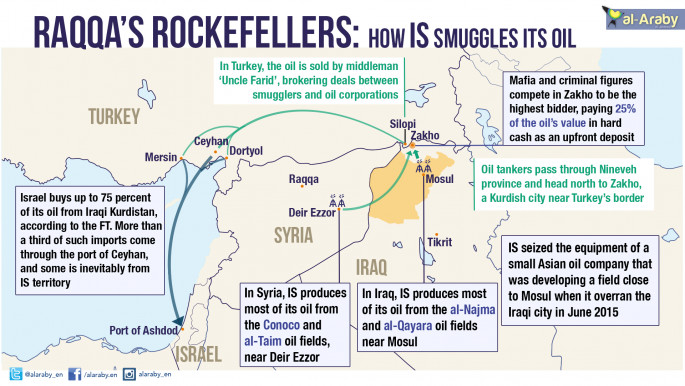Russia-US agree to get tough on IS oil supply
Russia and the United States will work together to strangle the Islamic State group's economic lifeline - oil.
IS' rudimentary oil infrastructure has provided crucial funding for the group.
It has also allowed the extremist group to purchase arms and pay fighters to carry out numerous atrocities and military offensives in Syria and Iraq.
Now Russian President Vladimir Putin said Russia has had enough and he is willing to work with rival the United States to end the trade.
Putin said he will back a US-supported draft resolution aimed at ramping up sanctions against IS and strangling the organisation's revenues.
"On the whole it suits us," Putin said on Thursday.
"We believe that on the whole it's an acceptable proposal although some things still need to be worked out."
Putin also alleged that Russian bombing of IS' oil infrastructure and trade routes had forced the extremists to choose new passages for its illegal oil trade.
IS has given up on its alleged supply route through its territories in northern Syria and Iraq, Putin said, and began a new supply chain.
Oil is then channelled into Iraqi-Kurdish territories and over the border into Turkey for sale, Putin said.
Putin also said Moscow is providing air cover for some rebel groups who are fighting IS - amid an "armed, uncompromising" Syrian opposition.
"We support their efforts in fighting [IS] with Russian air strikes," he said.
Rebel groups - particularly Turkish backed ones - have been the target of most of Russia's bombing, rather than IS.
They have also frequently denied working with Moscow to provide air cover.
Relations between Moscow and Ankara have also been tense since Turkey shot down a Russian fighter jet in November.
Despite reaching out to Washington, Putin also said that "the Turks had decided to lick the Americans in a certain place".
Both sides have traded accusations about involvement in the IS oil trade. Moscow has also launched heavy air raids on Ankara-backed Turkmen rebel groups in northern Syria.
Global backing
International support for anti-IS sanctions also appear to be making headway.
The UN Security Council is due to hold rare talks between global finance ministers to draft a resolution aimed at squeezing the Islamic State group's revenues.
"We support an initiative by the United States including on the preparation of a UN Security Council resolution on Syria," Putin said at an annual press conference.
The Russian leader said he spoke with US Secretary of State John Kerry earlier this week about the draft resolution amid continued tensions between the two world powers.
Washington is wary of Russia's increasingly belligerant nature - through its bombing of US-backed rebels in Syria and annexation of Ukrainian territory.
Putin said that the Syrian regime - which Moscow backs and Washington opposes - would also back the draft resolution, which should contribute to striking a peace deal between Syria's warring parties.
"Concessions should be done on both sides," he said.
The Russian president also stressed Moscow's unique role in the situation, which could help resolve the crisis in Syria.
He urged joint work on a Syrian new constitution and a "transparent" mechanism was needed for Syrians to take part in democratic elections and elect a leader, Putin added.
Putin held talks with Kerry on Tuesday in an effort to reach an agreement on how to end Syria's four-year civil war.
Key to this - Moscow believes - is a fresh round of international crisis talks in New York due to be held on Friday.
This, Russia believes, will allow the world to concentrate find peace in Syria and concentrate their resources on ending Islamic State group rule.
 |
| [Click to enlarge] |



